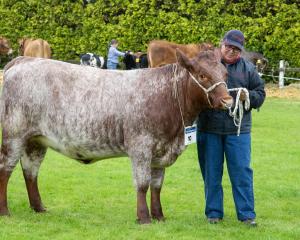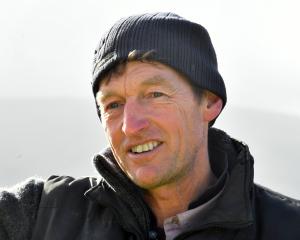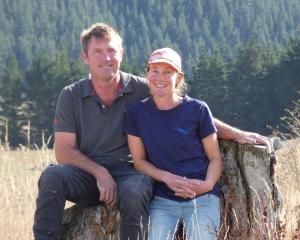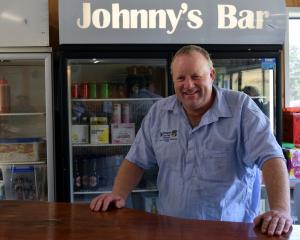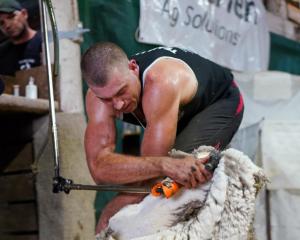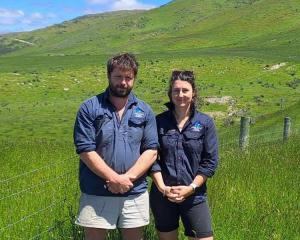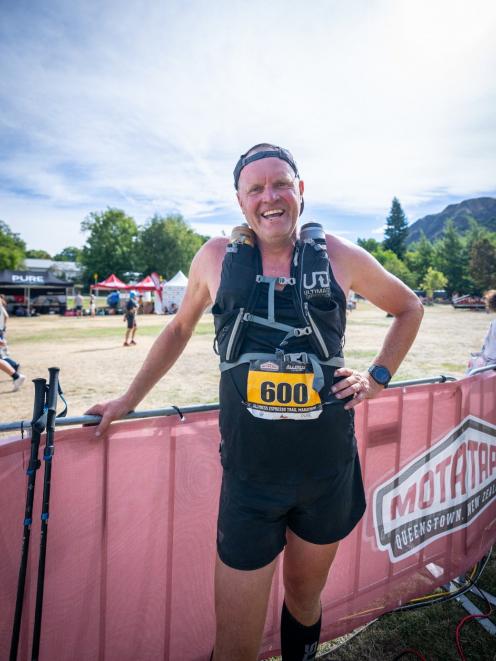
It all started with a sore back. Third-generation Glendhu Station farmer John McRae was suffering from debilitating sciatica pain and there were more questions than answers for his issues.
The pain became so bad that he could not work on the farm, and was told he would be in a wheelchair before too long.
"We eventually worked out that I had a high buildup of toxicity in my body from many years of being exposed to agrichemicals, and when I ate certain foods it would make my body flare up and create all these issues.
"So, if I wanted to stay on the land, I needed to leave the chemicals behind and find a way to farm without them."
After three years of trying organic farming, he realised it was a model that did not suit his ewes, so he decided to sell them.
‘‘It was a very sad time for my family, particularly my father who loved his sheep, and all those years of work that had gone into their genetics."
It was a challenging time for Mr McRae.
"It’s fair to say I dealt with stress with a pack of smokes a day and a few bottles of Speight’s to numb the pain."
When the sheep were sold, Mr McRae kept going with organic beef farming, and started organic poultry farming, supplying to local businesses.
His parents had developed 200ha of their 3500ha station into a golf course to help with family succession.
The sale of the golf course left Mr McRae and wife Emily with 1300ha of land and the remainder with his family.
From farming to events hosting and adventure racing
"We were able to develop the station’s historic woolshed and began hosting weddings and events."
The event business quickly grew, and he decided to sell the poultry enterprise in order to concentrate on events.
The family already had years of experience behind them hosting tourists at Glendhu Station. Under the economic strain of the 1980s, his parents Bob and Pam had looked for ways to bring in an off-farm income and started taking farm tours, which led to hosting weddings from a marquee on the homestead’s tennis court.
"When mum and my sister finished with the wedding business, I was asked to carry it on at the woolshed."
The beauty of hosting events was he met many different people on a regular basis.
At one point he made mention that he needed to fence off some waterways due to government regulations, and could maybe offset that with mountainbike tracks; he then met corporate financier and mountainbike enthusiast John Wilson.
The duo discovered a shared vision to create Wanaka’s first purpose-built mountainbike park. So Mr McRae leased Mr Wilson the land, and he made it happen.
Bike Glendhu was opened in 2020 and takes in 350ha of the station.
A slow take-off thanks to Covid has been short-lived, and it now hosts thousands of riders each year.
The arrangement is a 35-year lease on the land and is independently operated by a separate company with its own board of directors and shareholders. Mr McRae takes an income from the lease and is also a shareholder.
"The operational team and staff are incredibly hard working, creative and loyal. It’s been a privilege as a landowner to have people of this calibre invest their time and energy in the business."
The woolshed venue has led to hosting much bigger events such as Challenge Wanaka, the Motatapu race and Ripe Wine and Foods Festival. It has also led to a change in lifestyle for Mr McRae, who now runs marathons and enjoys a much healthier way of life — and has ditched the smokes.
"In 2005 when I took over this farm, never in a million years did I expect to be the person I am now."
Focusing on the positive
The personal change came with a level of judgement from others, which he learnt to handle by focusing on the positives and having a supportive family.
"The love and loyalty from Emily and my two children Robbie and Nieve has been huge.
‘‘People, particularly rural blokes, try to do everything in their power to blend in and not be different, but that can affect mental health.
"A lot of what I have strived to achieve is to fight off those fears, not be worried about being different; to feel the fear and just do it anyway."
When it came to farm diversification, Mr McRae said he was very careful what advice he would give to others.
"It’s hard to comment when you don’t know the full situation of someone’s business; if there’s a lot of debt, taking risks and trying new things can be very prohibitive.
‘‘But in saying that debt can also mean you have your blinkers on to what opportunities there are out there and sometimes all you can see is reasons why not to do something."
He could recall attending a Joel Salatin seminar and hearing a sentence which had stuck with him.
"It was this adage that despite a farm's system changing, an old fence built by Granddad could not be pulled down simply because it was built by Granddad — so that stops progress.
‘‘In many farming situations there can be resistance to change from the generation that has come before and often it is just out of respect to how things have been done for decades prior.
‘‘But if it is hindering progress, I am sorry, but sometimes the fence just needs to go. I think of that metaphor often as I challenge the status quo of what we are doing here."
A quote from a Jim Rhon book had also been a key reminder for him to enjoy the journey: "It says to ‘remember to be happy with what you have on the way to getting what you want’, and I just love that".


